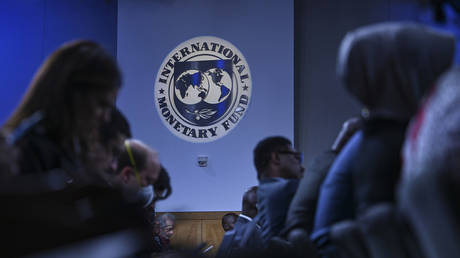Most of Europe Sees Drop in Productivity – IMF
The economy is poised for recovery, although growth will be moderate, as stated by Alfred Kammer, director of the IMF European Department.

Kammer, the director of the IMF European Department, emphasized that the EU economy is not experiencing the level of growth it could, with productivity issues affecting every member country. This week, the IMF released its regional economic outlook for Europe, predicting that the EU economy is on the upswing, but projecting a GDP growth rate of only 1.7% this year and in 2025, which is an increase from 1.5% the previous year.
In his analysis, Kammer identified three key factors that are hindering progress in the EU. He stated, “First, Europe’s markets are too fragmented to provide the needed scale for firms to grow. Second, Europe has no shortage of savings, but its capital markets fail to provide, to boost young and productive firms. In addition, Europe is missing skilled labor where it is needed.”
To address these challenges, Kammer suggested that eliminating the remaining barriers to the free movement of goods, services, capital, and labor across Europe would be a significant step forward.
He also highlighted a “stunning” 30% gap in income per capita between the EU and the US, which “remains unchanged for two decades now.” He attributed part of this disparity to low productivity in Central, Eastern, and South-Eastern Europe, regions that joined the bloc in the 2000s and contribute to its slow progress.
Kammer pointed out that a major reason for Europe’s struggles is “really the large Russian induced energy price shock Europe is going through,” with Germany being the most affected due to its energy-intensive manufacturing sector.
Following the escalation of the Ukraine conflict in February 2022, the EU prioritized reducing its dependence on Russian energy. Sanctions on Moscow and the sabotage of the Nord Stream pipelines in 2022 have significantly reduced Russian gas supplies to the EU.
Hungarian Prime Minister Viktor Orban stated in October that Brussels’ refusal to purchase Russian energy has hindered the EU’s economic growth. Some EU countries, including Hungary, Austria, Slovakia, the Czech Republic, and Italy, continue to import Russian pipeline gas.
The IMF has recently revised its growth forecast for Russia in 2024, increasing it from 3.2% to 3.6%, and has ranked Russia as the fourth-largest economy in the world based on purchasing power parity.
Nevertheless, the fund cautioned that the Russian economy is nearing capacity limitations and may be overheating. Kammer suggested that long-term repercussions of sanctions will result in fewer technology transfers and diminished ability to attract financing for Russia.
President Vladimir Putin asserted earlier this year that the Russian economy is faring well and expanding quickly despite the pressures of Western sanctions.
James del Carmen for TROIB News
Find more stories on Business, Economy and Finance in TROIB business












